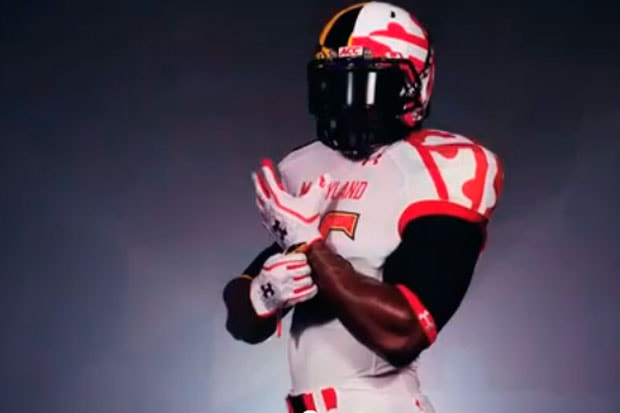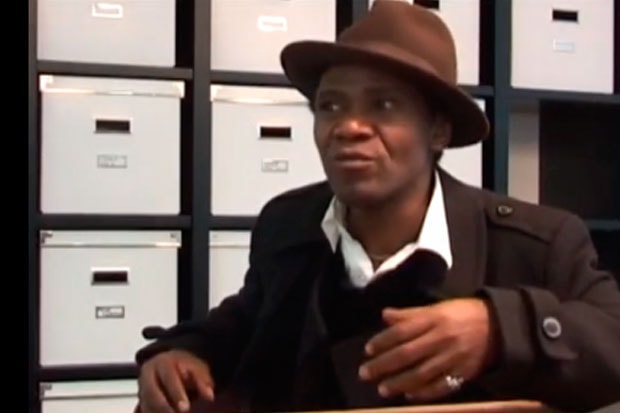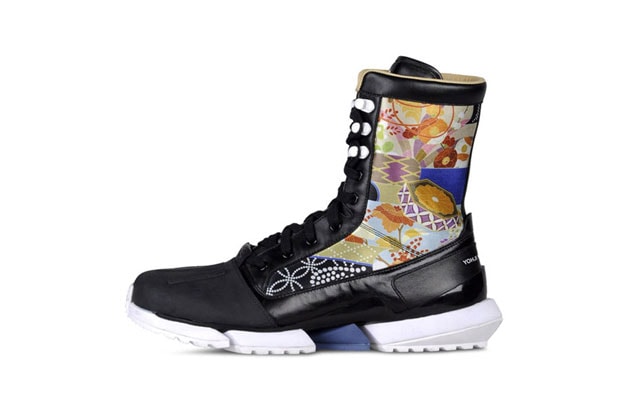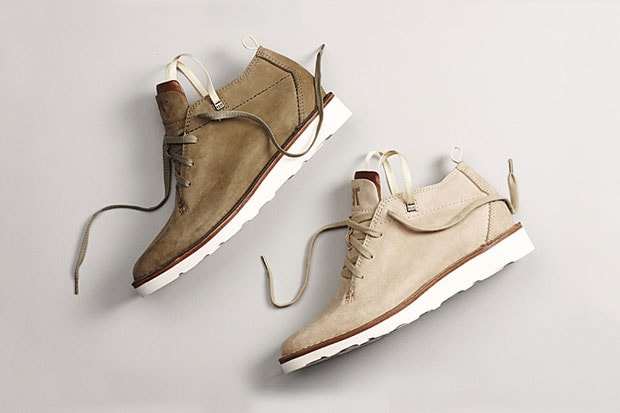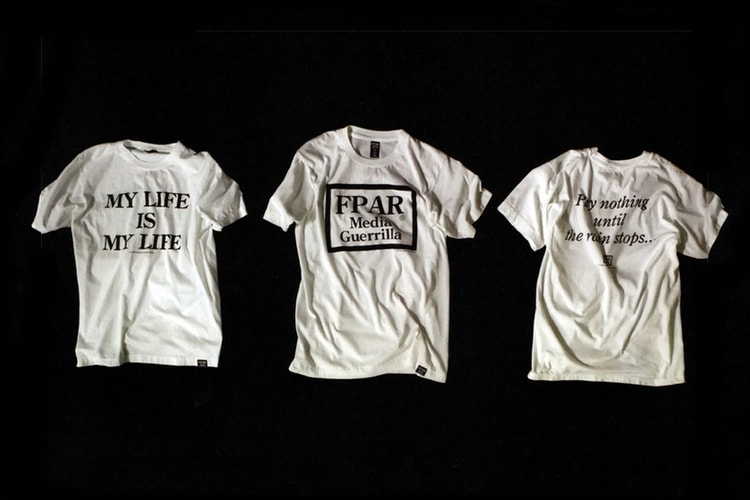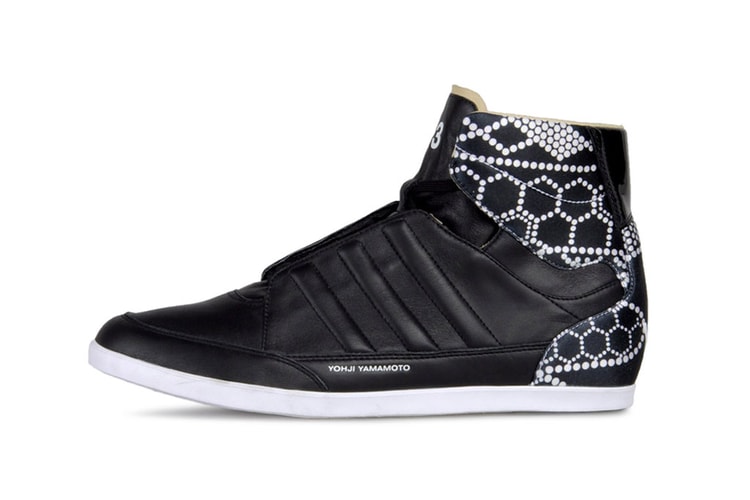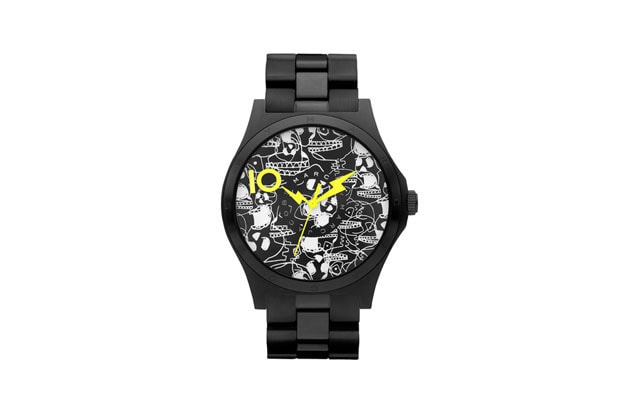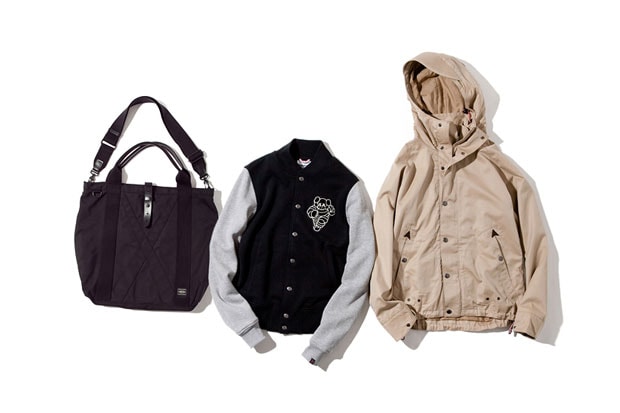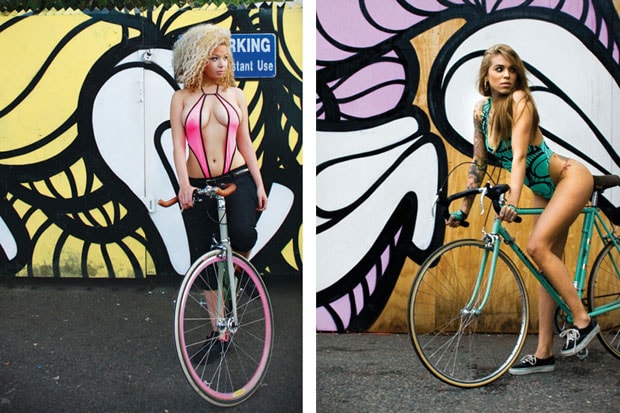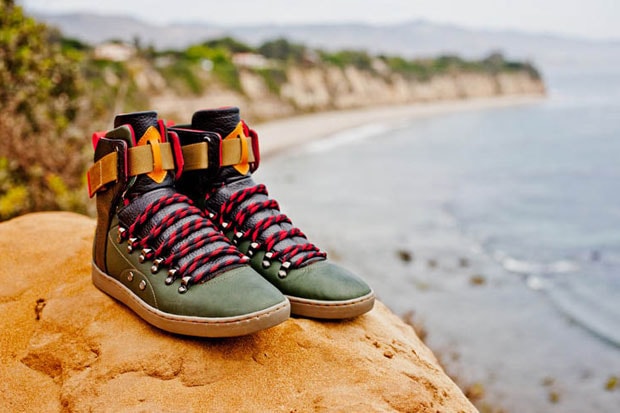Pigeon Talks with Alyasha Owerka-Moore Part 2
Adapt present the concluding piece to their inaugural Pigeon Talks feature which involves

Adapt present the concluding piece to their inaugural Pigeon Talks feature which involves pioneering designer Alyasha Owerka-Moore. This second part focuses on Owerka-Moore’s background as a designer, his time at Mecca, and his own label Fiberops. To conclude the interview is a look to the future which Owekra-Moore provides an honest overview of where he stands.
Part 1 of the Pigeon Talks with Alyasha Owerka-Moore can be seen here.
Top Pigeon: What brands stand out to you now? Do you feel anybody is doing anything innovative? Looking at where you are now, it seems that you aren’t really connected to this market at all. You seem very removed, and I understand that, but does anything stick out?
Alyasha: I think the guys from Brixton. Brixton sticks out more than anything right now. Primarily because they have a very defined brand image. They know who they are, they aren’t trying to cater to a bunch of different things, which in essence makes them a stronger brand. It’s very funny to me to see all these brands that a year ago were super Technicolor Dreamcoat, and are now making J. Crew and thinking that people will buy them because they are clean and simple and everyone is into Americana and men’s contemporary. What happened to your brand identity? You’ve completely forsaken who you were as a company and your brand ID for a new look that is ‘in trend’ when streetwear for years had been what created trend and now it’s following trend more than anything else. Whereas somebody like Brixton had started off, and has been and always will be kind of what it is, it’s like J. Crew, J. Crew has always been classic Americana stuff. Ralph Lauren, as far as I know, has only tried to follow a trend once, and that’s when they put together that license for Polo Jeans. What did that last, 4 years? Because they felt that it was kind of a stain on their credibility. Like we don’t need this. We’re Ralph Lauren. We make Americana. It’s what we do. That’s it. Ralph Lauren is not making all-over-print anything, except maybe that skull motif which is more of a monogram than anything. So you don’t need to cater to trends to sell clothing, it’s about creating a strong brand. That’s where a lot of people in streetwear and 7th Avenue, and the garment industry as a whole, lose it. I think Brixton is one of the companies that I’ve just been really impressed with as far as like creating a strong brand ID and sticking to it.
Top Pigeon: What brands stand out to you now? Do you feel anybody is doing anything innovative? Looking at where you are now, it seems that you aren’t really connected to this market at all. You seem very removed, and I understand that, but does anything stick out?
Alyasha: I think the guys from Brixton. Brixton sticks out more than anything right now. Primarily because they have a very defined brand image. They know who they are, they aren’t trying to cater to a bunch of different things, which in essence makes them a stronger brand. It’s very funny to me to see all these brands that a year ago were super Technicolor Dreamcoat, and are now making J. Crew and thinking that people will buy them because they are clean and simple and everyone is into Americana and men’s contemporary. What happened to your brand identity? You’ve completely forsaken who you were as a company and your brand ID for a new look that is ‘in trend’ when streetwear for years had been what created trend and now it’s following trend more than anything else. Whereas somebody like Brixton had started off, and has been and always will be kind of what it is, it’s like J. Crew, J. Crew has always been classic Americana stuff. Ralph Lauren, as far as I know, has only tried to follow a trend once, and that’s when they put together that license for Polo Jeans. What did that last, 4 years? Because they felt that it was kind of a stain on their credibility. Like we don’t need this. We’re Ralph Lauren. We make Americana. It’s what we do. That’s it. Ralph Lauren is not making all-over-print anything, except maybe that skull motif which is more of a monogram than anything. So you don’t need to cater to trends to sell clothing, it’s about creating a strong brand. That’s where a lot of people in streetwear and 7th Avenue, and the garment industry as a whole, lose it. I think Brixton is one of the companies that I’ve just been really impressed with as far as like creating a strong brand ID and sticking to it.
TP: One of the things that has frequently been utilized in graphic tees are logo flips, originating with Freshjive and others. It’s pretty much a staple approach at this point. Are you particularly averse to that, as I don’t recall seeing any of your stuff as such.
A: Freshjive does that. They were the kings of that. I come from a generation where everybody had their own style, you didn’t make records that sounded like somebody else’s records, you made a record that sounded like your record, and was as good, and got more plays. Now the mentality is like ‘oh, I’m going to make a record that sounds just like this guys record, but it’s my version.’ Which is why a lot of brands look like one big brand, and why a lot of contemporary pop music sounds like one long song. Not all of it, there’s definitely stuff that sticks out. It’s just interesting, that’s something that you wouldn’t dare do back in the day. There were a few brands, primarily Freshjive that did the logo flips, but there was a handful and that was their deal and everybody else did their own thing. Then it was really important to have your own brand identity and your own look and your own feel and your own aesthetic.
TP: I always kind of thought of it as sampling.
A: Absolutely. But I think there is so much to sample from, that it becomes a bummer when a whole subculture is sampling from the same place. Like who’s not right now. Who’s not pulling the same classic Americana references right now. It’s kinda like ‘alright, ok guys, a year ago you were a raver brand and now you’ve got choppers in your ads.’ In some ways that’s unfair to say, the people behind the brands are definitely evolving and exploring new things, and genuinely getting into things, but I think when people start to get into things because it’s trending and it’s what their supposed to be doing, they just want to follow, it becomes disingenuous. Such and such has choppers on his shirt, so I want to put choppers on my shirt. I just think it’s corny, and for me the reason we started making our own shit was because so much stuff WAS corny. It’s digressed, or whatever you want to call it, it’s kind of mutated back into this thing that it wasn’t ever supposed to be. There are some people that are doing cool stuff, but it’d just be nice to see people paying attention to actual design as opposed to completely remixing. But it’s cool—there’s a really rad documentary called Everything is a Remix. It’s a 4 part series, it’s got 3 parts so far. Pretty fascinating, really well researched and compiled and presented. It kinda substantiates a lot of where my head is at. Taking parts of things and integrating them into what you do. Absolutely, but when it becomes blatant plagiarism it’s like—have you seen that movie where they’re all wearing the white face?
TP: Dead Presidents.
A: Yeah, Dead Presidents. I was at Magic a year ago, and no exaggeration, 8 different brands had Dead Presidents t-shirts in the same season. People are still doing Scarface knocks. Shit was dead in ‘93. They just keep beating the same references, and it becomes commonplace. It just becomes mundane and boring. But then again, there’s a generation that hasn’t seen that stuff. I suppose if I was 16 I might be like ‘whoa, that’s really fucking cool ‘cuz I’ve never seen that before.’
The flipside is the brazen bravado, like ‘we’re the streetwear aficionados. We’re the front-runners. We’re breaking ground.’ Not really dude, kinda late to the game. Maybe in your neighborhood you’re the coolest kids. I wish there was more humility. It’s not a matter of me being like, ‘oh you guys gotta look up to me because I’ve been in this for so long.’ It’s more of, just be humble. Work hard. Because then you don’t give anybody a reason to dislike you. The only reason they can dislike you is because they’re jealous you’re busting your ass and actually making something happen. But when you get up on a soapbox and start spouting out all this ignorant shit that’s unfounded, it kind of gives people more of a reason to dislike you, and a more justified reason to dislike you and/or your brand.















